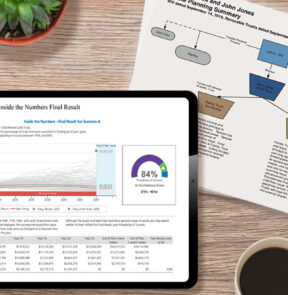“What should we do now?” This is often a question that is asked when a loved one is diagnosed with Alzheimer’s disease or some other form of dementia. While a diagnosis can evoke a sense of helplessness, proactive planning can help ease potential future difficulties.
Prevalance
Although it is not unusual for a person to have moments when he or she does not remember every detail, normal aging does not include serious mental decline. Dementia includes a decline in memory along with a decrease in general thinking capabilities that impacts a person’s independence and ability to function in everyday situations. Although Alzheimer’s is the most common type of dementia, it is only one of many types. Alzheimer’s affects 5.3 million Americans, of which 5.1 million are over age 65. An estimated 11 percent of those over age 65 are affected by Alzheimer’s, with almost one-third of those over age 85 having the disease. As our country’s population ages, the number of people over 65 with Alzheimer’s is projected to increase over 170% by 2050 to 13.8 million. The average patient lives four to eight years after an Alzheimer’s diagnosis, although the timeline can be much shorter or has been known to last as long as 20 years.1
When dealing with dementia, it is important to take four key steps:
1. Recognize the Condition
Dementia progression can be divided into three general stages: mild, moderate and advanced cognitive impairment. Initial symptoms often include a decreasing ability to remember new information. During this mild stage, the individual may struggle with handling finances and remembering names. He or she may become repetitive in conversation and may even get lost in familiar places. This stage is the most important for future planning since the individual still has legal capacity and is able to articulate wishes for future care.
During the moderate stage, the person may rely on a caregiver for assistance and become more withdrawn. At some point, the capacity to make legal decisions may be lost. Often during the moderate or more advanced stages, personality changes become more pronounced and the individual needs assistance with the most basic daily functions.
Eventually the individual may become wheelchair- or bed-bound and struggle
with speech. During the journey, glimpses of the former individual may present themselves and it is advisable to treat them with respect even if they begin to live in their own reality.
2. Develop a Care Plan
Ideally, a family should try to openly work together to develop a plan while their sick family member can be included in decisions about future care. Among the topics to discuss are who the caregivers will be and where the patient will receive care. It may not be necessary to significantly increase the amount of care or supervision immediately, but a plan should be in place for when more care is needed. Will a family member serve as caregiver? Will the caregiver need financial support? At what point, if any, will care responsibilities shift from a family member to a professional caregiver?
The decision making should include a realistic assessment of the temperament of any potential caregiver as well as his or her other commitments. All families should be aware of the physical and emotional toll of being the primary caregiver, with a nearly 40% incidence of depression in caregivers.2 Even if the affected loved one moves to a care facility, a family member may still play a significant role in monitoring care and providing for some needs.
Alternative locations for receiving care should also be part of this conversation. Ideally, where will mom live? At home? With a family member? In an assisted living or similar facility? Is a day care program available? Will a memory care unit eventually be included in the plan? Even if the initial plan is to receive care at home, visits to local facilities are prudent in case the plan has to change. With home care, the home environment should be reviewed to determine if any remodeling is required.
Care for someone with dementia can be very expensive. Even after a qualifying hospitalization, Medicare generally does not pay for care beyond the first 100 days in a nursing home.
3. Gather and Organize Information
To facilitate planning and future financial management, it is important to compile a comprehensive inventory of financial information including:
- Assets: Checking and investment accounts (including IRAs and 401(k)s), annuities, real estate, vehicles, collectibles, private business interests and other assets
- Liabilities: Details on liabilities including mortgages and credit cards, along with recurring bills and other obligations
- Insurance Policies: Life, long-term care, disability, property and any others
- Income: Social Security, pensions, alimony, and trusts as well as from assets included above
- Key Contacts: At a minimum, the name, address, phone and email information for trust officers, accountants, lawyers, insurance agents, bankers, investment officers, financial planners, health care professionals and other key contacts
- Digital Assets: Details on account login IDs and passwords
Once information is organized, financial projections can be prepared that incorporate the costs of the desired care plan as well as possible alternate plans.
4. Review Legal Documents and Named Fiduciaries
Estate planning documents should be reviewed in light of the impending loss of legal capacity. If documents do not exist, they should be created, and if documents are not current they should be updated. At a minimum, the
following documents should be in place:
- Health Care Proxy: A Health Care Proxy (HCP) names an agent to make health care decisions if an individual is unable to. In the case of a dementia diagnosis, the HCP should name at least two and preferably three individuals, in order of preference, to make decisions. Ideally, the HCP should acknowledge the patient’s dementia and identify the stage at which the designated agent will assume decision-making responsibility. Either in this document or in another document that provides advance directives, the individual should indicate in writing the types of care desired. For example, many individuals indicate that after the disease advances they would prefer no extraordinary medical measures be taken to prolong life beyond those that make the patient comfortable. In addition, it may be desirable to execute a Do Not Resuscitate (DNR) order that would only be used during a much later stage of the disease.
- HIPAA Authorization: This is often included in the HCP, but can be a separate document. This document authorizes medical professionals to provide named individuals with information about the patient’s health so informed decisions regarding medical care can be made. This authorization should also include language allowing trustees of trusts the patient may have established to obtain health information that may be relevant to the administration of such trusts.
- Durable Power of Attorney: A Durable Power of Attorney (DPA) authorizes one or more individuals or entities (their “Attorney in Fact”) to take financial action for the patient. Typical actions include opening or closing bank accounts, signing tax returns, paying bills and/or making gifts to family members. This document is “durable” in the sense that it continues in full force and effect even if the patient loses legal capacity. The DPA, as well as the will and revocable trust, should include language relating to the access of digital assets, including online accounts. In addition, the patient might use a DPA to nominate a court-appointed conservator and/or guardian, if such assistance were to become necessary.
- Will: Since a will is effective upon death, it will not contain provisions directly relating to an individual’s dementia. The will of a person diagnosed with dementia, however, should be reviewed to ensure that the personal representative (sometimes referred to as “executor”) named to administer the individual’s estate is still appropriate. In addition, provisions for the disposition of any assets that are owned in the individual’s name should be checked. Depending on how the will is drafted, it may also be desirable to prepare a list detailing the disposition of tangible personal property.
- Revocable Trust: It is also recommended that a revocable trust document be reviewed, or if one does not exist be drafted. The trust will name a trustee to administer assets for the benefit of the individual, and any other named beneficiaries, as well as establish a mechanism to appoint future trustees. The trustee’s ability to administer assets for the grantor’s benefit continues even if the grantor becomes legally incompetent. With a properly drafted trust instrument, the trustee can invest the assets in the trust and also make distributions for the benefit of the grantor and appropriate family members. If it is anticipated that a family member will serve as a caregiver, the trust might authorize payments to the family member. In order to maximize the benefit of the revocable trust, it should be funded by retitling bank, investment accounts and other assets into the name of the trust.
- Irrevocable Trusts: If the individual is a current or future beneficiary of any type of irrevocable trust, the terms of the trust should be reviewed to determine if the individual has any form of a power of appointment or other rights flowing from the trust. The exercise of any powers of appointment should be considered and discussed with an estate planning attorney. If the individual is currently serving as a trustee for an irrevocable trust, he or she should consider resigning.
- Special Needs Trust: Although beyond the scope of this article, if it is anticipated that the individual may qualify for public assistance at some point, the establishment of a Special Needs Trust (SNT) may be desirable. An SNT would allow the assets in the trust to be used for the benefit of the individual without jeopardizing other government benefits that might be available.
Named Fiduciaries: It is important that care be taken to ensure that the correct
individuals or fiduciaries are named in the appropriate roles. Often naming a corporate fiduciary, either to act alone or with a family member, provides a sense of security knowing that the corporate fiduciary is experienced and knowledgeable regarding its fiduciary duty to act in the best interests of the beneficiaries at all times. In addition, the ability of the corporate fiduciary to provide consistent financial advice and wealth management across generations is attractive.
The estate planning process should also include the review of beneficiary
designations and how assets are owned.
- Beneficiary Designations: A beneficiary designation is a form of contract that determines how assets will be transferred at death. Typical arrangements with beneficiary designations include IRAs, qualified retirement accounts (such as 401(k) and 403(b) accounts), life insurance policies and annuity contracts. All of these should be reviewed, including the beneficiary designations of other family members that may name the person experiencing dementia.
- Real Estate: How real estate is titled should be reviewed and updated as appropriate. It may be desirable to transfer real estate to the individual’s revocable trust or a nominee trust, or a spouse’s name may be added to the title. Care should be taken to not make any gifts of real estate or other assets that would potentially delay access to public benefits if it is anticipated that public benefits may be necessary.
- Other accounts: Authority and access to other accounts, such as the cell phone or cable television bills, should also be reviewed so that appropriate parties can assist once the individual is not able to manage any necessary changes to these accounts. Access to safe deposit boxes should also be reviewed.
People diagnosed with Alzheimer’s disease or suffering from another form of dementia need compassion and empathy from loved ones, as well as from their professional advisors. Officers at Fiduciary Trust are fortunate to have longstanding relationships with our clients and their families. A natural result of these relationships is that we can provide quality assistance to families confronting the challenges of dementia, serving as both a fiduciary and a resource during difficult times.




